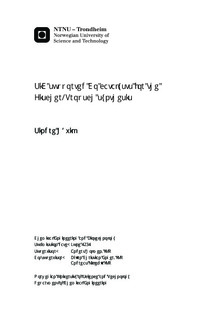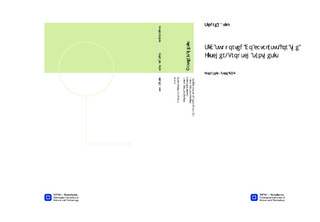| dc.description.abstract | With rising crude oil prices and outlook of declining crude oil production, conversion of natural gas into liquid fuels is gaining worldwide interest. Fischer-Tropsch synthesis is an important tool in achieving this conversion of natural gas, producing long-chained hydrocarbon products. These may be further processed into automotive fuel and other demanded products.
Ever since Fischer-Tropsch synthesis was invented in the 1920's, much effort has been put into development and improvement of all aspects regarding the process. Although cobalt has been found to be the most viable catalyst for natural gas conversion today, much resources are put in to optimize the catalyst with regards to promoters and support materials.
Usual support materials for cobalt catalyzed Fischer-Tropsch synthesis are Al2O3, SiO2 and TiO2. This thesis has investigated SiC as support material.
Seven different SiC-support samples were obtained from commercial manufacturer SICAT, and impregnated using the incipient wetness impregnation method with 12.5 wt.% cobalt loading. Characterization methods applied were volumetric adsorption, volumetric chemi-sorption, X-ray diffraction, temperature programmed reduction, electron microscopy and steady-state isotopic transient kinetic analysis. All SiC-supported catalysts tested were reduced at lower temperatures than Al2O3-supported Co- and CoRe-catalysts. Volumetric chemisorption showed poor dispersion of cobalt metal (2-3%) on the SiC-supported catalysts.
In total, seven SiC-supported catalysts and one Al2O3-supported reference catalyst, were run in an experimental Fisher-Tropsch synthesis rig to obtain activity and selectivity results. The SiC-supported catalysts showed varying activity results, and were all less active than the Al2O3-supported reference catalyst. However, at the same CO conversion level, SiC-supported catalysts yielded an increased C5+ hydrocarbon selectivity compared to the reference catalyst.
The decreased activity, and increased C5+ selectivity observed for the SiC-supported catalysts, were suspected to be caused by alkali and alkaline earth metal impurities in the support samples. After the first batch of catalysts were tested and found little active, SICAT supplied a second set of purer support samples. However, the results suggested that there were still enough impurities present to cause significant loss of activity compared to the reference catalyst. | |

